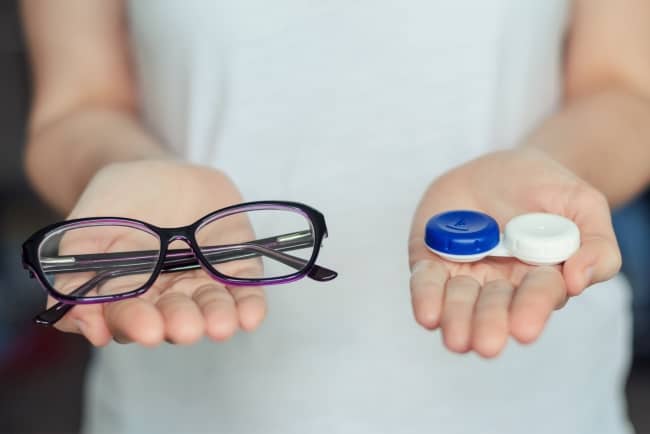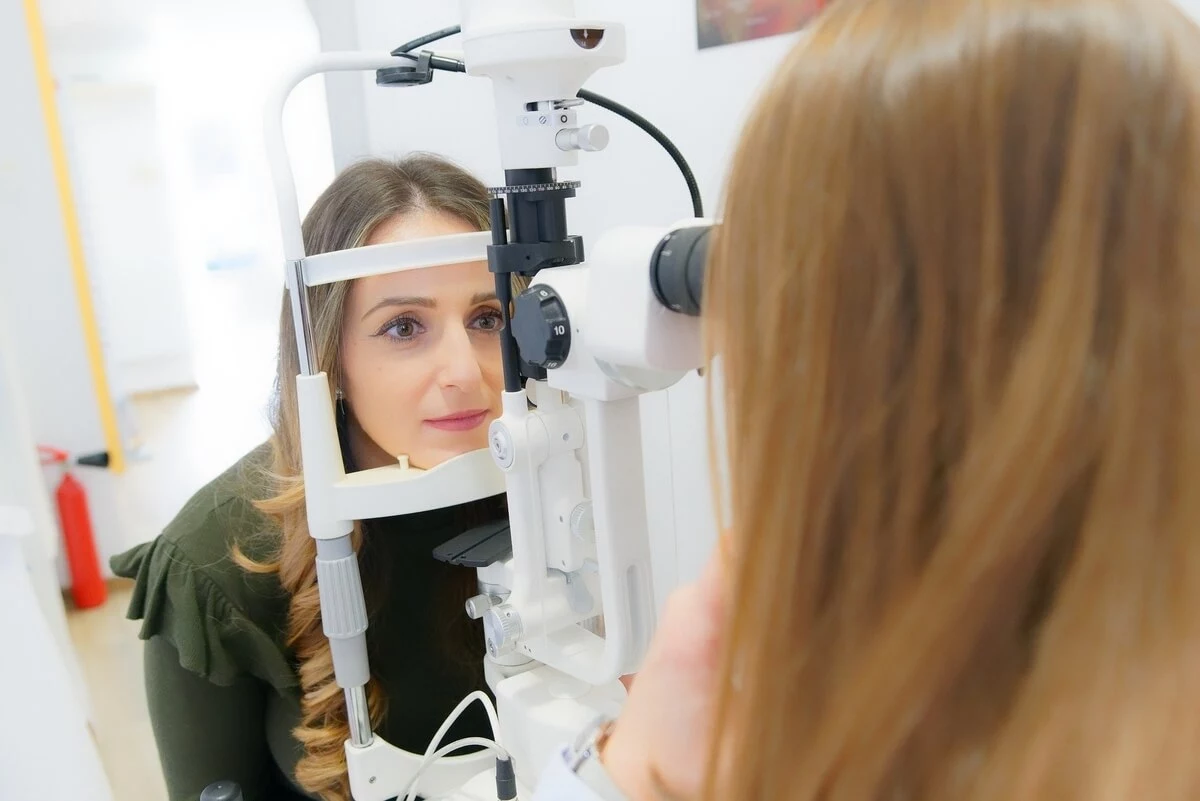Vision correction has come a long way from the days of monocles and magnifying glasses. Today, the two most popular options—contact lenses and glasses—offer clear sight with their own unique set of benefits and challenges. If you’re weighing your choices, you’re not alone. Millions of people face the same question: Contact lenses or glasses—which is right for me? At Healthy Life Only, we believe that the best decision is an informed one. Let’s explore the pros and cons of each so you can choose what fits your lifestyle, health needs, and personal preferences.

Content
The Case for Glasses
1. Ease of Use
Glasses are universally recognized for their simplicity. You put them on, and you’re ready to go—no special solution, no need for precise hand-eye coordination, and no risk of contaminating your eye. They’re ideal for anyone, including children and seniors, who may not feel comfortable handling their eyes.
2. Eye Health and Safety
Because glasses don’t actually touch your eyes, they pose less risk for infection or irritation. They also provide a protective barrier against dust, wind, and debris, making them a great choice for outdoor activities. Plus, glasses can help reduce eye strain from digital screens if you opt for blue-light blocking lenses.
3. Fashion and Function
Today’s glasses go beyond function—they’re a fashion statement. With countless frame styles, colors, and materials, you can change your look to match your mood or outfit. Prescription sunglasses and transition lenses also provide added versatility.
4. Maintenance and Longevity
With proper care, a good pair of glasses can last for years. Cleaning them is as simple as using a microfiber cloth and some lens cleaner. There’s no need for daily replacement or frequent purchases, making them a cost-effective option in the long run.
5. Drawbacks to Consider
- Weather and Activity Limitations: Glasses can fog up in humid conditions, get splattered in the rain, or slide down your nose during exercise.
- Peripheral Vision: Frames can limit your field of vision.
- Physical Vulnerability: Glasses can break or scratch, especially during sports or rugged activities.
The Case for Contact Lenses
1. Natural Vision Experience
Contact lenses move with your eyes, providing an unobstructed, full field of vision. There are no frames to block your side view, making them ideal for driving, sports, and other activities where peripheral vision is important.
2. Aesthetic Appeal
If you prefer not to change your appearance or want a glasses-free look, contacts are virtually invisible. They allow you to showcase your face, makeup, or sunglasses without interference.
3. Flexibility for Active Lifestyles
Contacts don’t fog up, get splattered by rain, or slide down your face. This makes them a favorite among athletes, outdoor enthusiasts, and anyone constantly on the move.
4. Technological Advancements
Modern contact lenses come in a variety of options: daily disposables, extended-wear lenses, toric lenses for astigmatism, and even multifocal lenses for aging eyes. There are even colored contacts if you want to try a new eye color for fun!
5. Drawbacks to Consider
- Maintenance: Contacts require careful cleaning and handling to avoid eye infections. Daily disposables reduce the risk but can be more costly.
- Eye Health Risks: Sleeping in contacts (unless specifically designed for it), overwearing lenses, or failing to clean them properly can lead to discomfort, dryness, or more serious eye conditions.
- Cost: Over time, the recurring expense of lenses, cleaning solutions, and regular replacements can add up.
- Not for Everyone: Certain eye conditions, allergies, or dry eyes may make contact lens wear uncomfortable or unsuitable.
Lifestyle Factors to Consider
So how do you decide which is best for you? Here are some factors to help guide your choice:
1. Comfort and Convenience
- If you want something you can put on and forget, glasses may be more convenient.
- If you’re active or dislike the feeling of frames on your face, contacts might suit you better.
2. Eye Health
- People prone to eye infections or with sensitive eyes may do better with glasses.
- If you have healthy eyes and are diligent about hygiene, contacts are a safe option.
3. Cost
- Glasses have a higher upfront cost but last longer.
- Contacts require continuous purchasing but can be budgeted in smaller increments.
4. Style and Personal Image
- Glasses can be a fun, expressive accessory.
- Contacts allow you to show your natural face or experiment with eye color.
5. Special Situations
- For sports and outdoor activities, contacts are often more practical.
- For long hours at the computer, glasses with blue-light protection may help reduce eye strain.
Can You Use Both?
Absolutely! Many people choose to alternate between glasses and contacts depending on their activities or needs. For example, contacts during workouts or special occasions, glasses at home or while working. Having both options gives you flexibility and ensures you always have a backup.
Getting the Right Fit
No matter which option you choose, the key to healthy vision is regular eye exams and professional guidance. If you’re considering making a switch or want to explore new options like specialty lenses, consult with a vision care professional. For a comprehensive range of eye health solutions, including expert fittings and assessments, explore CustomEyes optometry services.
The Bottom Line
Both glasses and contact lenses have their place in modern vision care. Your choice depends on your lifestyle, preferences, budget, and health needs. The most important thing is to select what makes you feel comfortable, confident, and able to see the world clearly.
At Healthy Life Only, we encourage you to prioritize your eye health as part of your overall wellness journey. Whatever you choose, regular eye check-ups, proper lens care, and listening to your body’s needs will ensure your vision remains sharp for years to come.
Ready to see the world more clearly? Take the next step towards better eye health today!

Gina Jordan is a health blog author who has been writing about healthy living since 2013. She started her journey by adopting a vegan diet and eating only organic foods, but the more she learned, the more she realized that we should all be eating plant-based diets exclusively. As an expert in nutrition and wellness, Gina blogs to educate readers on how they can live happier and healthier lives through food choices!


